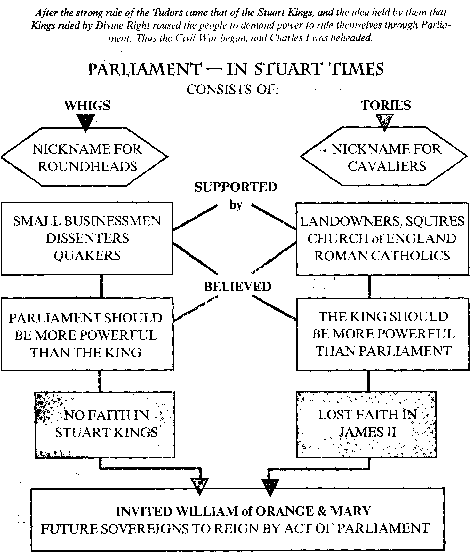
45
The language of radicalism which burst out between 1640 and 1645 alarmed conservatives of all kinds.
Oliver Cromwell himself was a reluctant republican anxious to preserve "the ranks and orders of men –
whereby England hath been known for hundreds of years: a nobleman, a gentleman, a yeoman."
However, it was the Nobility and Gentry who eventually profited from the Civil War and the Interregnum
between 1649, the year of Charles's execution and 1660, the year of the Restoration of Monarchy. The Diggers
failed in their ventures and the Levellers were supressed in 1649 after they rebelled against Cromwell and
other army leaders. The Commonwealth, with Cromwell as Lord Protector, the period when England was a
republic, is also described as Interregnum.
From 1655 England was divided not only into parishes, where the justices of the peace remained, but into
districts, each with a soldier, Major-General exercising authority in the name of "godliness and virtue".
The Army was maintained by taxes imposed on the Royalists. From December 1653 until his death in
September 1658, Oliver Cromwell ruled England and Scotland, he imposed temporarily a single government
on England and Scotland.
In the country and in the towns the new regime closed alehouses and theatres, banned race-meetings as well
as cock-fights, severely punished those people found guilty of immorality or swearing and suppressed such
superstitious practices like dancing round the May Pole or celebrating Christmas.
Oliver Cromwell was a unique blend of country gentleman and professional soldier, of religious radical and
social conservative. He was at once the source of stability and the ultimate source of instability. With his death
the republic collapsed as his son and successor Richard lacked his qualities and was deposed 6 months after the
beginning of his rule.

